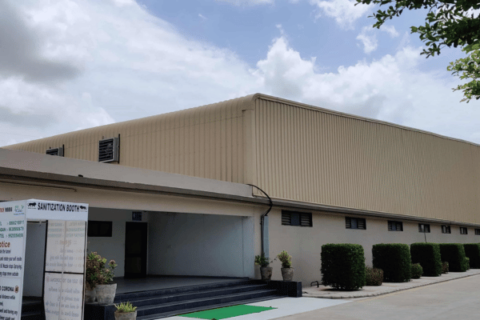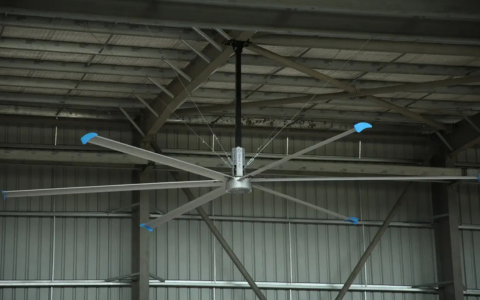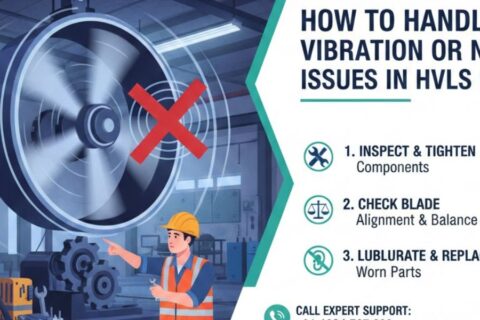Industrial fans, such as Marut Air, play a crucial role in maintaining air quality, regulating temperature, and ensuring proper ventilation in various industrial environments. Whether it’s a warehouse, factory, or large-scale agricultural facility, these fans are essential for creating a safe and comfortable workspace.
One common dilemma businesses face when acquiring industrial fans is whether to buy or rent. This decision impacts both short-term budgets and long-term financial planning. In this blog, we’ll explore the key factors to consider and provide a cost analysis to help you make an informed choice.
Understanding the Cost Factors: Buying vs. Renting
Before weighing the pros and cons, it’s important to understand the cost considerations involved:
- Initial Investment: Buying an industrial fan requires a significant upfront payment, covering the purchase price, shipping, and installation. Renting, on the other hand, involves lower initial costs with payments spread over the rental period.
- Maintenance and Repairs: When you own a fan, you bear the responsibility for maintenance and repair costs. These expenses can add up, especially as the equipment ages. Rental agreements typically include maintenance services, reducing this burden.
- Depreciation: Like all equipment, industrial fans lose value over time. If you own a fan, depreciation becomes a sunk cost. Renting eliminates this concern since you return the equipment when no longer needed.
- Flexibility: Renting provides the flexibility to scale operations up or down as needed. Buying, while offering more control, requires a long-term commitment and financial investment.
Advantages of Buying Industrial Fans
For some businesses, purchasing industrial fans is the best option. Here’s why:
- Long-Term Cost Savings: If your business needs industrial fans for continuous use, buying is often more cost-effective. Although the upfront investment is high, the cost of ownership decreases over time compared to repeated rentals.
- Full Control: Ownership gives you complete control over the equipment’s usage, maintenance, and potential upgrades, without needing approval from a rental company.
- Resale Value: While fans depreciate, they still retain some value. If you decide to upgrade or no longer need them, you can sell the equipment to recover part of your investment.
- Tax Benefits: In some jurisdictions, owning industrial fans may offer tax advantages, such as depreciation deductions or capital allowances.
Advantages of Renting Industrial Fans
Renting can be a smart choice for businesses with short-term or fluctuating needs. Here’s how it benefits your operations:
- Lower Initial Costs: Renting eliminates the need for a large upfront investment, freeing up capital for other business priorities.
- Included Maintenance and Repairs: Most rental agreements cover maintenance and repairs, saving you time and money. If a fan malfunctions, the rental company typically provides a replacement at no extra cost.
- Scalability: Renting allows businesses to adjust equipment based on demand. For example, you can rent additional fans during peak seasons and return them when they are no longer required.
- No Depreciation Worries: Since you don’t own the equipment, depreciation is not a concern, making it a hassle-free solution for businesses that prefer to avoid owning depreciating assets.
Cost Analysis: Which Option is More Economical?
Your decision to buy or rent will depend on your business’s specific needs, budget, and operational goals. Here’s a simple cost comparison:
- Short-Term Projects: If you need industrial fans for a few weeks or months, renting is the more cost-effective choice. The lower upfront costs, along with included maintenance, make it ideal for temporary use.
- Long-Term Use: If you require fans for continuous operation, purchasing will save more money in the long run. Although the initial investment is high, the cost per year of use decreases over time.
- Seasonal Demand: Businesses with seasonal ventilation needs may find renting more practical. For example, if additional cooling is only required during the summer, renting allows you to avoid unnecessary storage and maintenance costs.
- Budget Constraints: If your business has limited funds, renting provides a predictable expense structure, making it easier to manage cash flow.
Additional Considerations
Beyond cost, other factors can influence your decision:
- Technology Upgrades: Industrial fan technology is constantly evolving. Renting allows you to access the latest models without being stuck with outdated equipment.
- Storage Requirements: Owning fans means you need space to store them when not in use. Renting eliminates this concern, as you can return the fans after use.
- Vendor Relationships: Renting from a trusted supplier can provide added benefits, such as priority access to equipment and future rental discounts.
Conclusion
Deciding whether to buy or rent Marut Air depends on your business needs, budget, and long-term strategy. If you need industrial fans for continuous use and prefer full control, buying may be the better investment. However, if you require flexibility, have short-term projects, or need to manage expenses carefully, renting is the more practical option.
By carefully evaluating the advantages, disadvantages, and cost implications of each choice, you can select the option that best suits your operational needs and financial goals. No matter what you decide, ensuring your industrial ventilation system is efficient and cost-effective will contribute to a safer and more productive work environment.





